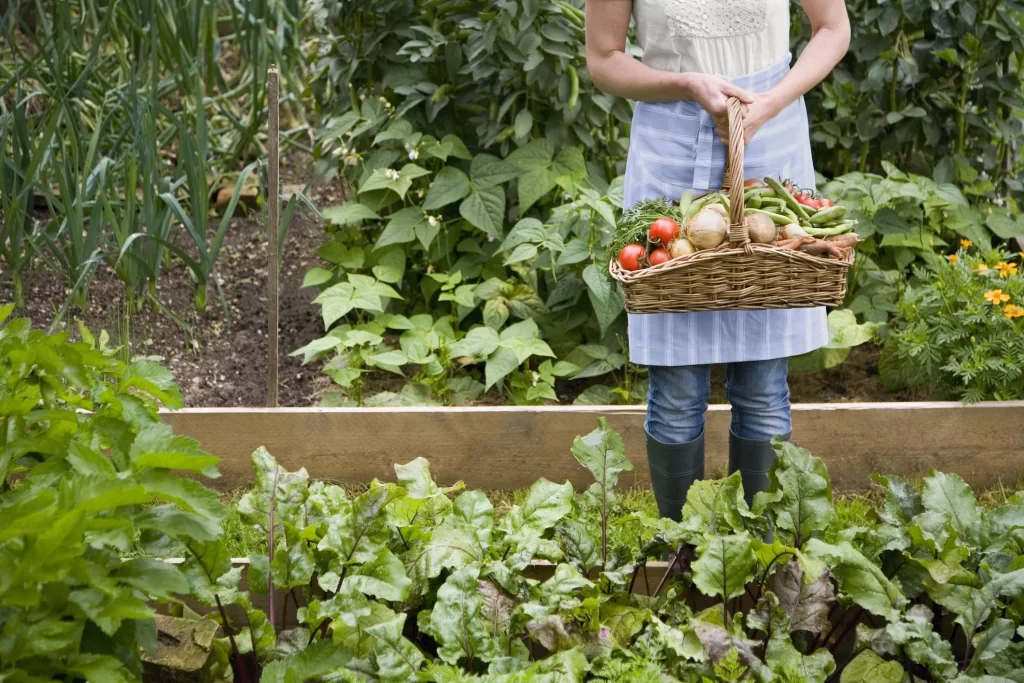
Home gardens are small-scale subsistence food production systems developed and maintained by households to meet daily nutritional requirements.[1]
Agriculture producers mainly grow crops for consumption such as vegetables, fruit, herbs and spices for human use. Furthermore, they supply indigenous medicines, home remedies, firewood and alternative fuels as well as firewood.
They provide ecosystem services such as soil conservation, nutrient cycling and pollination.
Economic Benefits
Home gardening can be an invaluable asset in food self-sufficiency and household economic stability. Studies show that households that cultivate their own gardens can produce 20-60% of the fresh vegetables, medicinal, aromatic plants, eggs and milk from small animals that they need for daily consumption – an increase in nutrition intake that contributes to household resilience against temporary shortages or natural disasters.
Home garden produce sales are an effective way to supplement family incomes, providing savings or purchasing other commodities. Furthermore, cultivating home gardens allows families to engage in physical activity such as digging, planting and weeding which promote health and wellbeing.
Home gardens can help increase biodiversity by selecting appropriate species and employing effective management practices, as well as engaging in environmental education for gardeners. Furthermore, home gardens could serve as a repository of local knowledge related to crops and livestock production that foster agronomic development while upholding traditional farming traditions.
Social Benefits
Home gardens are typically led and managed by women and provide households with an abundant source of fresh foodstuffs, improving family nutrition while meeting daily consumption needs in cases of food insecurity, price fluctuations and malnutrition. Furthermore, these home gardens can act as an additional source of income while simultaneously raising women’s socio-economic standing.
Home gardens not only produce food, but can provide additional resources such as indigenous medicines, home remedies for ailments, firewood or alternative fuel sources, manure for building materials or animal feed. Furthermore, they can help preserve traditional knowledge and skills that may otherwise become extinct.
Home gardening can also serve as an effective form of exercise. According to studies, gardening tasks help increase serotonin (feel-good hormone), reduce stress levels and promote contact with nature as well as environmental awareness – all key components for leading a healthy lifestyle. Furthermore, gardening helps mitigate nutrition-based health inequalities.
Environmental Benefits
Home gardens have been shown to offer numerous environmental advantages. Studies have demonstrated their ability to reduce chemical fertilizers and pesticide use, leading to improved soil health, while producing less GHG emissions than commercial food production [119]. Moreover, composting reduces methane and nitrous oxide emissions.
Studies have demonstrated the positive environmental benefits of home gardening. Home gardening promotes environmental consciousness and pro-environmental behavior while producing crops within your garden can improve soil quality and nutrition, cutting down on chemical fertilizers and pesticides that pollute waterways and harm the environment.
Home gardens typically boast high biodiversity. Studies have revealed that home gardens contain plants serving various purposes such as food, medicine, spices and ornamentals. Home gardens can act as carbon sinks if planted strategically while also helping sustain “wild” species metapopulations through habitat creation [120]. Furthermore, certain crops grown in home gardens may reduce noise pollution by blocking out noise sources like roads.
Health Benefits
Though it may seem counter-intuitive to your health goals, digging in the dirt may actually be an indicator of strong immunity. Studies have revealed how beneficial bacteria found in soil can boost immune function and make it easier for us to remain healthy while combatting infections.
Gardening can be an excellent form of exercise. As a low to moderate intensity activity, gardening has been shown to raise levels of brain-derived neurotrophic factor and platelet-derived growth factor – both associated with memory and cognitive functioning.
Home gardens provide an important source of fresh nutrients in many areas where people don’t have access to enough nutrient-rich food sources, contributing to improved nutrition and food security, while helping reduce malnutrition-based diseases [72].






